During the 500th anniversary of the Reformation celebrations in Debrecen, guests both local and international gathered together to give testimony to the influence of the Reformation in their lives. Speakers from around the world reflected on the question, “What does Reformation mean for me and my community?”
One of the highlights for guests at the 500th anniversary of the Reformation celebrations in Debrecen was a morning gathering in the Agora, a large tent set up just outside the Great Church. It was a place where people could gather to learn more about the RCH’s ministries and listen to personal testimonies about how being reformed influences our lives. Speakers from around the world reflected on the question, “What does Reformation mean for me and my community?” and shared a short personal testimony on how they see the spirit of the reformation shaping their personal lives and the ministry of their church today. Hungarian Reformed Bishops from Slovakia, Transylvania, and Transcarpathia shared their reflections along with six Ecumenical guests from Lithuania, Spain, Scotland, Taiwan, Germany, and Greece, and a Roma colleague.
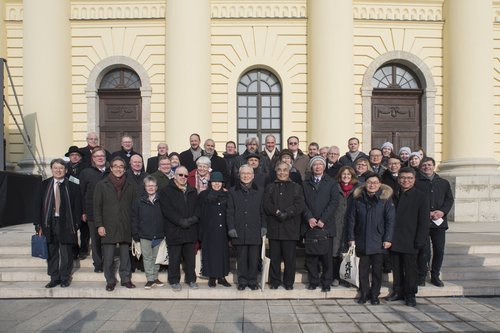
Various booths and tables were set up around the interior walls of the tent, filled with promotional materials and information about the ministries of the RCH. Guests from around the world would get a cup of hot tea from a booth and then meander their way up and down the tables, asking questions and browsing the materials at each. Church ministries on display included the Roma Ministry, Eco-Congregation Movement, Refugee Ministry, and Hungarian Bible Society, among others.
As people milled about and learned more about the RCH and its work in the region, speakers took to the stage in the front of the tent and gave personal testimonies as to the influence of the Reformation in the lives.
In his opening remarks, Zsigmond Vad, Dean of the Debrecen Presbytery, reflected on the reformed heritage of the city throughout history.
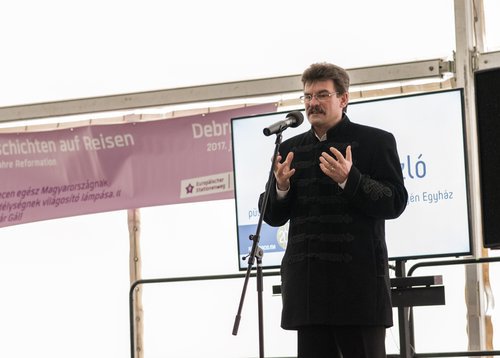
Bishop László Fazekas of the Reformed Christian Church in Slovakia said that, even as a seminary student, he was amazed by how the Reformers were so focused on the word of God and their commitment to find God’s justice. “This motivated me as well. Being reformed, to me, means being renewed daily in this search,” he said, telling the audience that every day he searches for God’s justice.
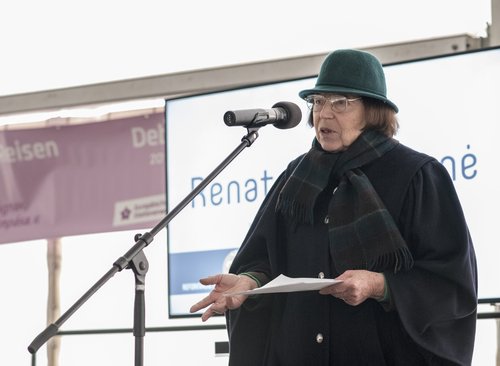
“I look at your celebration and my heart is very joyful,” said Renata Bareikienė of the Evangelical Reformed Church of Lithuania. “When I go home I will tell them of your event,” she said, promising to spread the spirit of Reformation among her own church in the coming year.
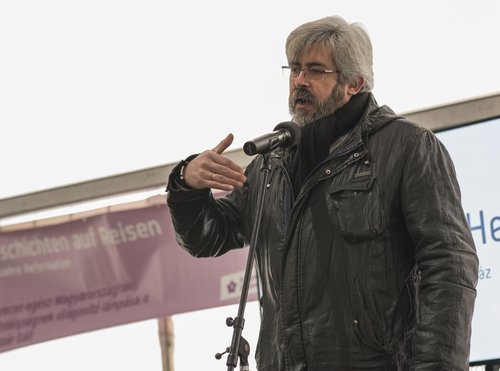
Alfredo Abas Heras of the Evangelical Church in Spain spoke of how, “Reformation in these days is really a challenge.” He told the crowd about his family from the north of Spain and how they were persecuted for their faith and had to flee, seeking refuge in other countries. “In my life,” he said, “my experience of the Reformation has been that of a transition from persecution to a dialogue,” about ecumenical relationships, a theme that was on full display in the Agora.
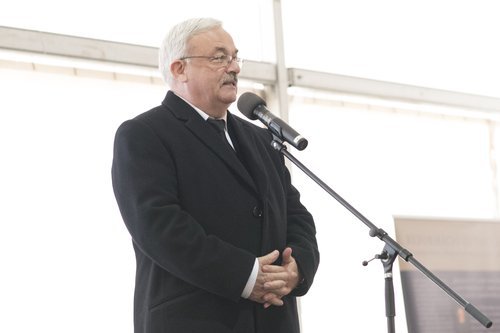
Bishop Béla Kató from the Reformed Church District in Transylvania told the audience that for the Hungarians living in Ukraine, their fate as a minority community is connected to the history of the Hungarian nation. “We think in a different way and we have to fight a lot for others to accept our thoughts and opinions based on the knowledge of scripture and our confessions” he said in regards to life beyond the border.
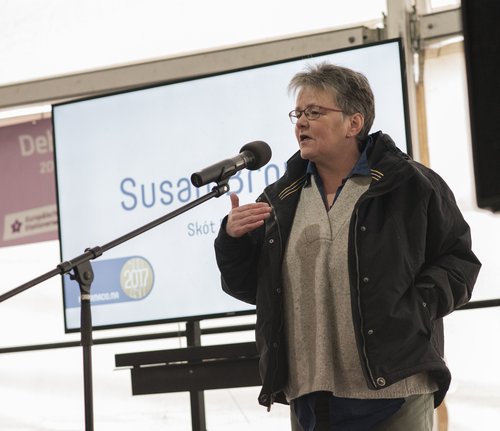
Rev Susan Brown of the Church of Scotland used her time on stage at the Agora to talk to the audience about how the Reformation is truly for everyone, from the poorest to the richest and everyone in-between. “We have had 500 years of struggle in many respects, but we have also had 500 years of witness,” she said.
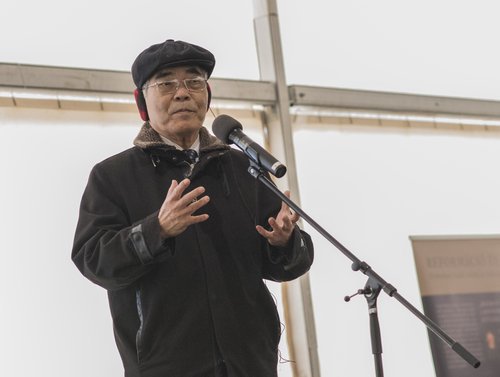
Dr. Victor W. C. Hsu of the Presbyterian Church in Taiwan spoke to the audience of the importance for individuals to nurture the common faith and said that, “Churches must manifest the unity that we find in Jesus Christ.”
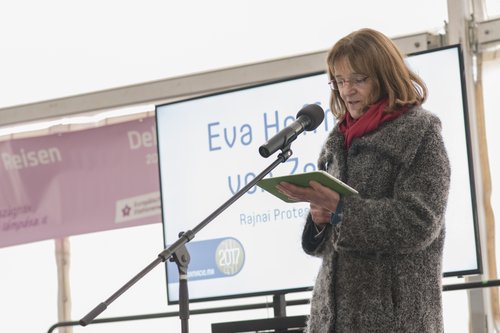
Eva Hoffmann von Zedlitz of the Evangelical Church in the Rhineland spoke of her hopes for the future of the continent, saying that, “While Europe is confronted with severe social and economic problems, our churches are called to rise to these challenges, witnessing firmly our common faith in Jesus Christ.” She encouraged those in attendance to, “contribute to a just and peaceful Europe by holding to the Gospel in words and in deeds.”
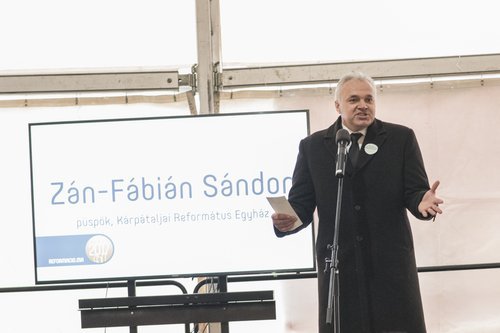
Growing up in the Soviet Union, Bishop Sándor Zán-Fábián of the Reformed Church in Transcarpathia found that the congregation he and his family belonged to taught them that being reformed is a good thing. “When I was a child, being reformed was an advantage,” he said. His grandmother kept her bible on the table of her sewing machine and this taught him that scripture was not a secret book for clergy, but could be spiritual sustenance for everyday people. In his opinion, spiritual renewal could give a chance to the young but troubled country of Ukraine.
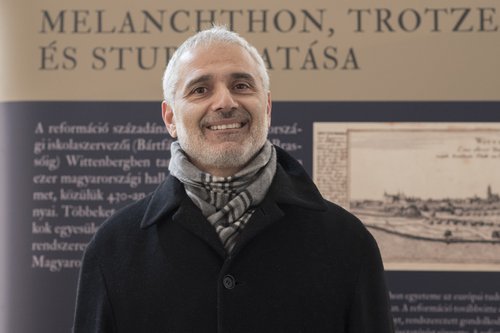
Representing the Greek Evangelical Church, Dimitrios Boukis remarked that, “In a Europe that is changing constantly, we are transformed as people of God. We have a responsibility,” he said, “to become as human as possible, and that means to try to live according to the image of God in our daily life.”
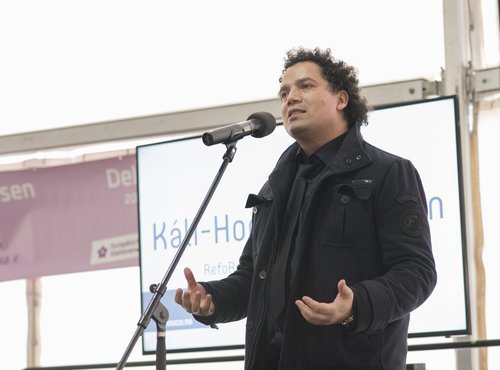
Kálmán Káli-Horváth, a Hungarian from the Reformed Roma Collegium in Budapest, said that, for him, reformation means that we do not accept others judgments on us or the world, but through reading the Bible we find God and believe that each of us are His precious children. “With the legacy of Reformation, we cannot turn our face from the fact that Gods tears are falling for the Hungarian Roma people,” he said, encouraging those in the audience to embody a sense of openness in their everyday lives.
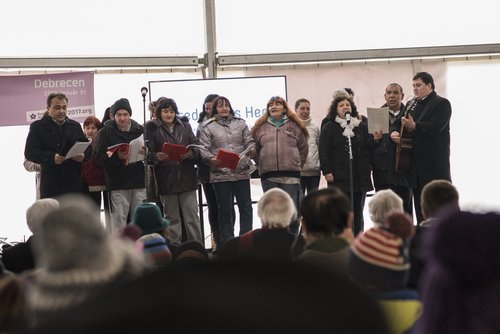
Each speaker at the Agora had their own unique take on the Reformation given their specific context, but all of the testimonies were thought provoking and an excellent way to begin the Reformation celebrations. Speeches were given in both Hungarian and English due to a group of dedicated translators on hand, meaning that all those in attendance had the opportunity to hear testimonies from around the world, and musical intermissions between speeches were provided by the Roma Mission of the Transtibiscan Church District. Ecumenical guests were moved by hearing about what the Reformation means in a Central European context, while locals in the audience could be seen jotting down notes as the international speakers’ words were translated into Hungarian.
Through this time of storytelling and experiencing the world through one another’s eyes, all in attendance gained new perspectives on the Reformation.
Article by Kearstin Bailey